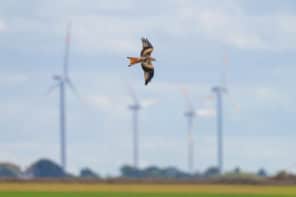Energy accounts for more than three-quarters of our greenhouse gas emissions globally each year. That’s not surprising, given the role of energy in almost every aspect of modern life. To stand any chance of hitting net zero climate targets, we need to accelerate the transition to greener forms of energy generation.
In this episode of the Physics World Stories podcast, Andrew Glester explores two novel forms of renewable-energy generation, both with the potential to scale and not suffer from issues of intermittency.

Space-based solar power: could beaming sunlight back to Earth meet our energy needs?
First up, Nicol Caplin speaks about SOLARIS, an ambitious ESA project investigating the feasibility of sending a fleet of solar cells into space. In principle, the robot-assembled technology could capture solar energy 24/7 and beam it back to Earth in the form of microwave radiation. ESA is currently calling on scientists to submit research activities related to space-based solar power, with a deadline of 25 September.
Next up, Danny Coles from the University of Plymouth, UK, speaks about the potential to upscale tidal stream energy generation. This is a way of harnessing kinetic energy from the movement of water in tidal currents – a predictable source of energy driven by lunar and solar cycles. Coles works on the Tidal Stream Industry Energiser Project (TIGER), designed to drive the growth of tidal-stream energy and bring down its costs.

The curious case of the porpoises and the wind farm
Of course, introducing any large machinery into the marine environment brings potential risks for marine wildlife. Our final guest, Douglas Gillespie from St Andrews University in Scotland, describes how he is assessing the risks to cetaceans, including dolphins and porpoises. A physicist-turned-biologist, Gillespie and his team have recently been tracking the movement of marine mammals in the vicinity of tidal-energy infrastructure.
To learn more about the challenges associated with energy, take a look at IOP Publishing’s new open-access journal Environmental Research: Energy. You can also register for Environmental Research 2023, a series of free-to-attend online events, from 16 October to 23 November.



